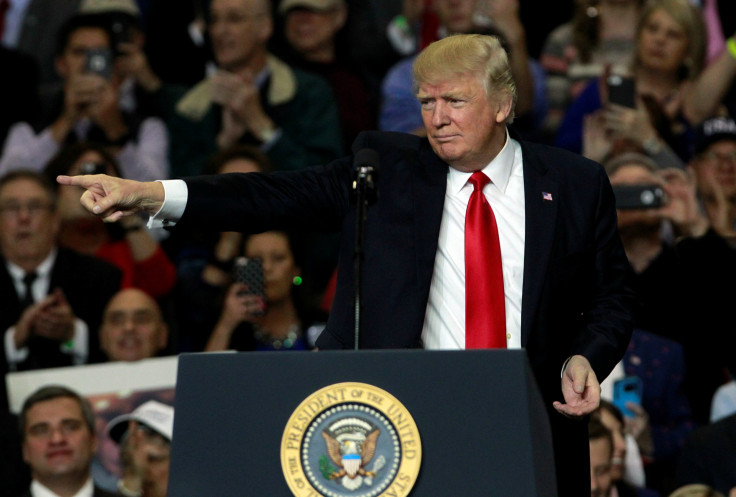Is Trump Good For US? Every Federal Worker Gets A Raise In President's Budget Proposal

President Donald Trump released his "America First" budget proposal Thursday, offering a fundamentally different approach to overseeing the federal government compared to his predecessor, former President Barack Obama. The budget blueprint included a 10 percent increase ($54 billion) in military spending in the next fiscal year, a hike in funding for the Department of Veterans Affairs and even a raise for all civilian federal workers in 2018.
Though several agencies will see cuts in spending under Trump's proposal, including the Environmental Protection Agency and the State Department, the president's budget blueprint featured a request for the Commerce Department to "factor in a 1.9 percent pay raise for civilian employees, to go into effect on the first pay period of January, 2018," according to the document.
That’s the bare minimum raise Trump could request in his budget proposal for the following fiscal year, according to the Federal Salary Council. But his supporters said it’s a step in the right direction.
What's getting cut in Trump's budget https://t.co/fwCogXDiQp pic.twitter.com/Y20WZDNjpT
— The Washington Post (@washingtonpost) March 16, 2017
"For his first year, a raise was expected," Rachel Greszler, research fellow at the conservative political think tank Heritage Foundation, told Washington Post. "We look forward to more significant changes in a year."
Still, critics said Trump’s budget proposal wasn’t enough to help struggling federal workers, half of which are employed through the Departments of Homeland Security and Defense.
"While it’s good that the White House recognizes the need to raise wages for federal employees, [a 1.9 percent pay raise] is far below what’s called for under the law," J. David Cox Sr., president of the American Federation of Government Employees union, said Monday. "Federal employees earn less today than they did at the start of the decade when adjusted for inflation, and they deserve a more meaningful increase to make up for the more than $182 billion in cuts to their pay and benefits that have occurred since 2010."
Meanwhile, Rep. Gerry Connolly, D-VA, and Sen. Brian Schatz, D-HI, introduced the Federal Adjustment of Income Rates (FAIR) Act just weeks after Trump's inauguration, which called for a 3.2 percent pay raise for all federal employees in January 2018.
"Federal employees are facing the same financial challenges as any middle-class worker and their salaries need to keep up with rising costs of health care, tuition and mortgages," Tony Reardon, president of the National Treasury Employees union, said in a statement.
© Copyright IBTimes 2024. All rights reserved.






















